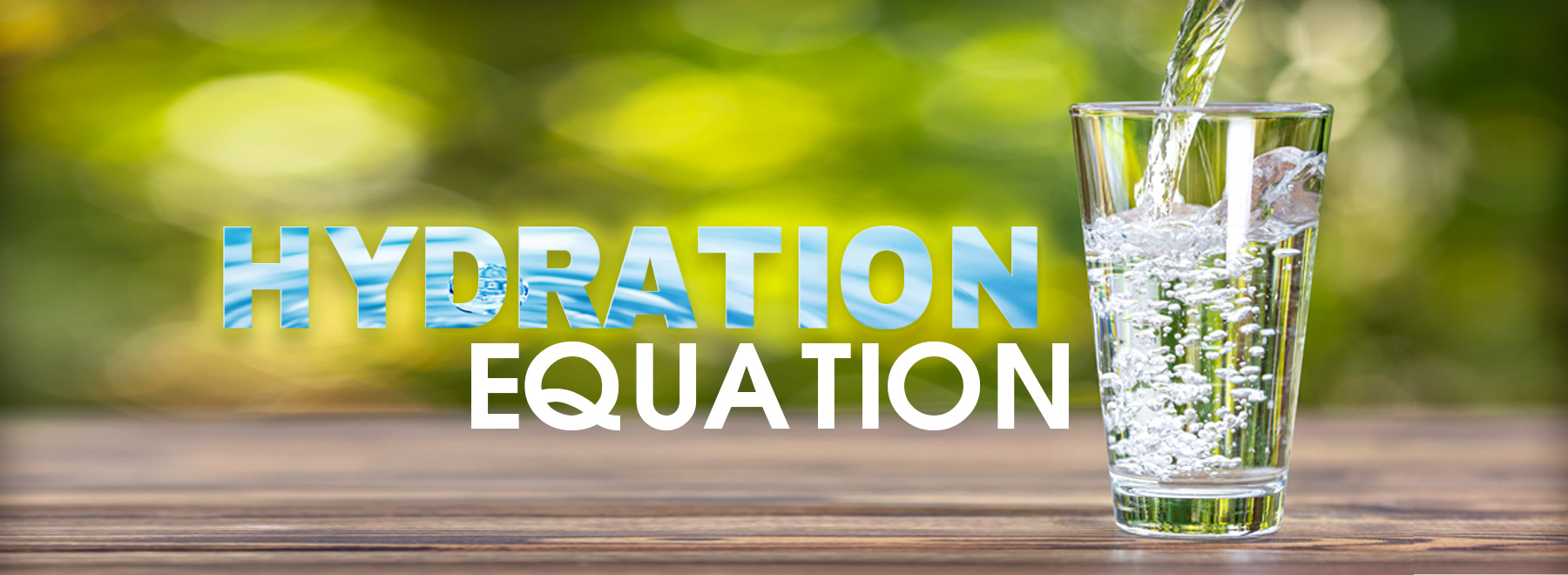Is advice on daily water intake down the drain?
When it comes to staying hydrated, we’ve all heard of the eight-eight-ounce-glasses-a-day rule – but how much water does it really hold?
The truth of the matter is fluid, say experts at the University of Mississippi Medical Center.

“It’s a reasonable goal to shoot for, but it’s not a one-size-fits-all,” said Dr. Elena Dent, a UMMC instructor in preventive medicine and a registered dietitian.

That 8x8 standard, which first appeared almost five decades ago, “did not take into account a lot of things,” said Dr. Jennifer Hong, an associate professor of pediatric critical care at UMMC. A half-gallon of water, or fluids, consumed daily may not be enough for some people, and too much for others.
In 1974, the late Dr. Frederick J. Stare, an influential nutritionist, wrote that the average adult should drink at least six glasses of water a day, and up to eight. That has been received wisdom among many humidifying Americans ever since.
But there are qualifying factors not broached by that recommendation, such as your level of activity, the climate you live in and the body you inhabit.
“You probably don’t need 100-plus ounces if you aren’t active, you’re 5-foot-2 and you don’t have a medical reason to do so,” said Dent, who is also a certified diabetes care and education specialist in the Lifestyle Medicine Clinic at UMMC. National Basketball Association players probably need more.
If you’re not a power forward, and even if you are, let the wonderful world of color be your guide. If your urine is slightly pale-yellow, you’re probably drinking enough water, Dent said. The darker it is, the more likely you’re not drinking enough.
Which raises another point: You should have to “go” a certain number of times in a 24-hour period. Normal frequency is about six to eight times, although it can be higher for some people.
At any rate, water is not just something you drink to stay your thirst; it’s something you drink to stay alive. Regardless of height and activity level, you can drink too much of it, and when that happens, your sodium level can fall to dangerous lows. Your cells begin to swell, including those in your brain, Hong said.
“That can lead to a seizure or a coma,” she said. Can it kill you? “Absolutely.”
While many people know, or can learn, when they’ve had one glass too many, it’s more complicated for others.
That complication is called psychogenic polydipsia, a psychiatric condition that drives a patient to drink water compulsively. Besides brain-swelling, over-drinking can lead to symptoms of nausea, vomiting and delirium.
As a pediatrician, Hong does see brain-swelling in infants, through no fault of their own. They have been fed water or formula that wasn’t mixed properly, she said.
“It’s dangerous for babies under six months old to have water.”
Instead, she said, if infants become dehydrated, they can use rehydration drinks like Pedialyte, under the careful direction of their medical provider, to restore lost electrolytes: essential minerals such as sodium, calcium and potassium which are necessary for the body to operate normally.
Ultra-endurance athletes who compete, for instance, in events exceeding six hours in duration, including Ironman-type triathlons or ultramarathons, running races beyond a standard 26.2-mile marathon, may be prone to water intoxication and hyponatremia – abnormally low sodium – if water is all they drink.
To counteract all that sweating, those athletes, and those undergoing rigorous physical activities like two-a-day football practices, need a balance of water and electrolyte-containing beverages, Hong said.
“For shorter distances, such as a 5K, most bodies don’t need all that salt you get with sports drinks. Drinking water is perfectly fine.”
So is there at least a starting point when it comes to deciding how much water to drink and when? If you wait until you’re thirsty to drink, have you waited too long?
“I tell people to use their common sense,” Dent said. “If you wake up and you haven’t had any water overnight, you probably need water. And if you’re not drinking water in the first place, you need to start there, with the eight, eight-ounce glasses a day and adjust as needed.
“People want guidelines. Another one says your goal should be to drink, in ounces, half the number representing your weight in pounds. So if you weigh 150 pounds, you would drink 75 ounces.”
That’s just under 9-and-a-half cups.
“That’s reasonable,” Dent said.
What’s not reasonable is urine that is as clear as water, she said. That probably means you’re overdoing it, H2O-wise.
“But drinking too much water is not the problem I see the most,” Dent said. “I work with a lot of people to get them to drink more water. Some say they don’t like the taste. So I encourage them to try something they might like, such as flavored water, or carbonated water, sugar-free.
“I’m more than happy to see you do that instead of drinking Dr. Pepper all day.”
In fact, when calculating your water intake, you are allowed to account for the other fluids you consume through food, Dent said.
“You can depend on getting about 20 percent of your fluids from the foods you eat, such as fruits and vegetables,” she said. “That’s really important in the elderly population. When you’re older, your sensation of thirst decreases. So eating healthy foods with high water content is important for you then.
“If you like things like grapefruit or watermelon, for instance, I would encourage that.”
When meeting your fluid needs, she said, “this is also an important contribution when the Mississippi summer is in swing.”
Liquids, including milk, tea and coffee, also count – up to a point.
“You should not get all of your water from caffeinated coffee,” Dent said. “I would count about half of your coffee consumption toward the total amount of fluid you take in.
“Milk is more hydrating compared to coffee. But milk also has sugar, especially sweet milk, such as chocolate and vanilla. Anything with a lot of sugar brings other risks.”
Another beverage you may have run across is sold by the alkaline water industry, Dent said.
“They promote their products as a way to let your body reach a balanced pH” – a figure expressing acidity and its opposite, the alkalinity, of a solution. “It’s not necessary to buy the marketed alkaline drinks in order to achieve a balanced pH. Your kidneys and respiratory system take care of that; they regulate your pH. But if that’s the water you like, by all means, drink it.”
Miracles have been attributed to regular water as well. There is the claim that detoxing with water will make your skin radiate vitality.
“Can you insert an eye roll here?” Dent said. “Water is important for healthy skin, but so are other lifestyle factors, such as sleep, diet and stress management.”
Whatever it will, or won’t, do, it should not be taken for granted, as many Jackson-area residents and business owners rediscovered last month during a water crisis brought on by days of sub-freezing temperatures. An outbreak of broken pipes and frozen water pumps meant low, or no, water pressure, resulting in boil-water alerts and desperate searches for bottled water.
“For the elderly and those who have poor social determinants of health, it can be especially difficult to get enough water during that situation,” Dent said. “Also, it takes effort to boil water, and some people may not bother.
“I do worry about that.”
For people without the means, it’s difficult having to drive to store after store looking for bottled water, Hong said.
“Just getting to the closest grocery store is hard for many. But you need water.”
The above article appears in CONSULT, UMMC’s monthly e-newsletter sharing news about cutting-edge clinical and health science education advances and innovative biomedical research at the Medical Center and giving you tips and suggestions on how you and the people you love can live a healthier life. Click here and enter your email address to receive CONSULT free of charge. You may cancel at any time.



